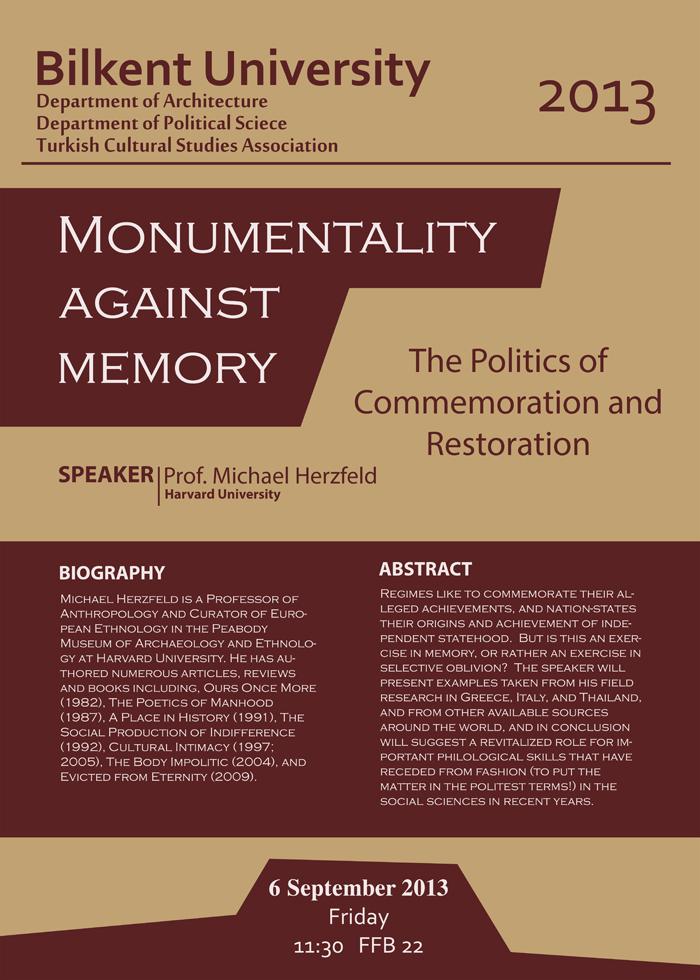
Regimes like to commemorate their alleged achievements, and nation-states their origins and achievement of independent statehood. But is this an exercise in memory, or rather an exercise in selective oblivion? By playing off the 19th-century Greek folklorists’ notion of “monuments of the word” against the current debates about intangibility and the role of institutions in generating particular visions of the past and carefully obliterating others through the management of “heritage,” we can inaugurate a more sophisticated approach to the study of how personal memory can be manipulated, distorted, and suppressed, but rarely if ever destroyed. The speaker will illustrate his theme with examples taken from his field research in Greece, Italy, and Thailand, and from other available sources around the world, and in conclusion will suggest a revitalized role for important philological skills that have receded from fashion (to put the matter in the politest terms!) in the social sciences in recent years.
Biography:
Michael Herzfeld was educated at the Universities of Cambridge (B.A. in Archaeology and Anthropology, 1969), Athens (non-degree program in Greek Folklore, 1969-70), Birmingham (M.A., Modern Greek Studies, 1972; D.Litt., 1989); and Oxford (Social Anthropology, D.Phil., 1976). In addition to numerous articles and reviews, he has authored the following books: Ours Once More(1982), The Poetics of Manhood (1987), A Place in History (1991), The Social Production of Indifference (1992), Cultural Intimacy (1997; 2005),The Body Impolitic (2004), and Evicted from Eternity (2009).

